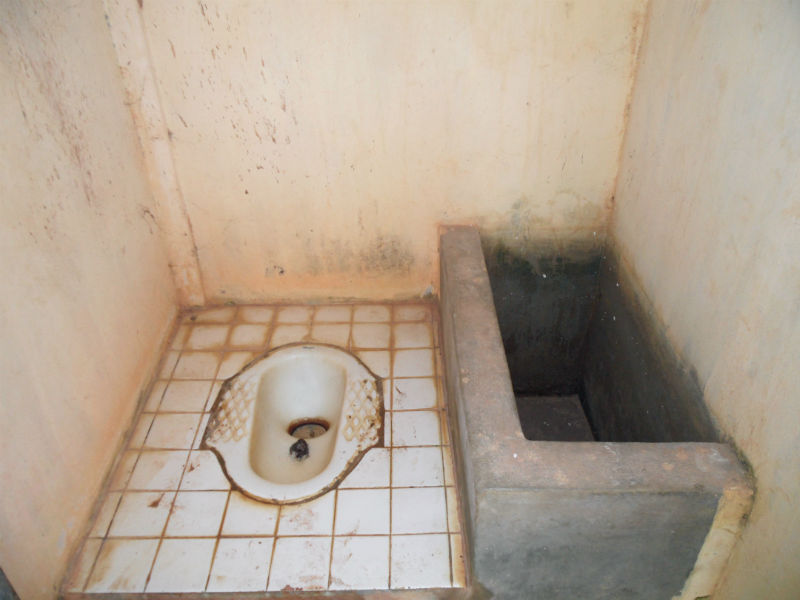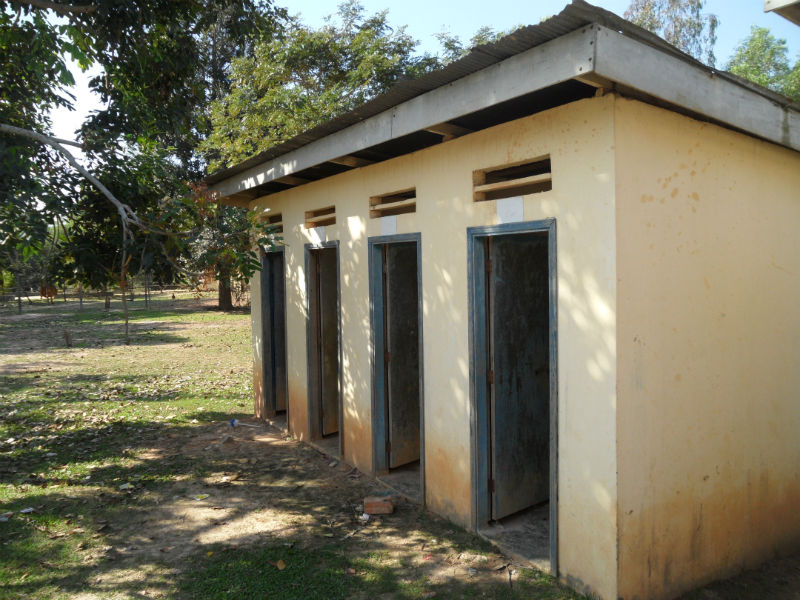Location
Doul Sala Village, Svay Jake Commune, Rom Doul District, Svay Rieng Province, Cambodia
Community Description
Doul Sala is a small agricultural village located approximately 12 km from national road 13, which is a small paved road connecting Rom Doul district to the provincial town. The dirt roads connecting the village to national road 13 are narrow, poorly maintained, and often flood during the rainy season.
The distance and difficulty of the roads, in addition to the high price of gas, lead many people to suffer economically due to lack of trade, and medically due to the difficulty of travel to the health center during the rainy season.
The community is primarily comprised of rice farmers who grow rice not to sell, but to feed their families throughout the year. Rice is harvested once per year at the end of the rainy season. The quantity and quality of the harvest are largely dependent upon the amount of rain during the rainy season.
 The Doul Sala Primary School currently educates 508 students in 14 classrooms. There are an additional 4 classrooms that have been abandoned due to the old age and deterioration of the building.
The Doul Sala Primary School currently educates 508 students in 14 classrooms. There are an additional 4 classrooms that have been abandoned due to the old age and deterioration of the building.
Students typically study from 7 am to 11 am in the morning and 2 pm to 4 pm in the afternoon. Due to lack of pay, many teachers provide private classes during the lunch and afternoon hours. The average student studies eight to nine hours per day.
The need for water and toilettes is obvious when considering the time the students spend at school. Unfortunately, the school’s eight presently existing toilettes currently have no water source during the dry season and as a result are very rarely used by the students or faculty. Without water, the toilettes cannot be flushed or cleaned and those who use the toilettes cannot wash their hands.
The lack of a water source for the toilettes at the school places the students at higher risk of illness because it forces the students to defecate and urinate on the lawn behind the school. Without the use of toilettes, flies and other insects can easily cause the spread of dangerous illnesses. The inability to wash hands at the school also significantly raises the risk of illness.
 Project Description
Project Description
This project is to drill a new well to give the students and faculty of Doul Sala Primary School water for functioning toilettes and hand washing.
Community members have already paid for a private driller to visit the site and decide the appropriate placement, size, and depth of the well. The private driller is currently prepared to start construction of the well. The site, depth, equipment, and manpower have been planned, and only await the funds to begin the project.
The well will be built near the eight existing toilettes at the school. The well will be 50 meters deep to ensure access to quality water during the height of the dry season.
The well will have a concrete base, run-off basin, and liner. A gas-powered pump has been chosen, as there is no access to electricity at the school. The school has a concrete and barbed wire fence, which will provide security for the well.
The faculty and community members have agreed to participate in the construction of the new well, carrying concrete to the site and excess dirt and mud from the site.
They will be at the site during the construction should the private driller require further assistance.
In addition to physical labor, the faculty and parents have raised $30 to be used toward the project. The school director has agreed to take responsibility for arranging the funds for the gas that will be used to power the well pump and the funds for future repairs.
The skilled labor will be entirely performed by the private driller to ensure quality and limit the possibility of injury.
Project funds will be used to pay for the services provided by the driller and the gas used to power his equipment. Project funds will be used to purchase the PVC pipe, the gas-powered pump and the concrete to be used in the well base, liner and run-off basin.
Upon completion, a sample of the well water will be sent to a Phnom Penh laboratory to check for chemicals such as arsenic. The well will begin to be used once proven safe.
Project Impact
The 508 current students and 16 current faculty members will be directly affected by the project.
Peace Corps Volunteer Directing Project
Christopher Donnelly
Comments
A new well will remove a major cause of illness by allowing students to use the toilettes, flush the toilettes, and wash their hands.
The project has a tremendous amount of support from the community and the school.
Dollar Amount of Project
$555.00
Donations Collected to Date
$555.00 + additional amounts for future projects
Dollar Amount Needed
$0.00 – This project has been fully funded through the generosity of friends and family of Peace Corps Volunteer Christopher Donnelly, with additional amounts for future projects.
We encourage others to continue to donate using the Donate button below, and we will notify Christopher of your donation. Additional funds will be used to fund the next project by Christopher and/or those of other PCVs in the country of service.
![]() This project has been finished. To read about the conclusion of the project, CLICK HERE.
This project has been finished. To read about the conclusion of the project, CLICK HERE.